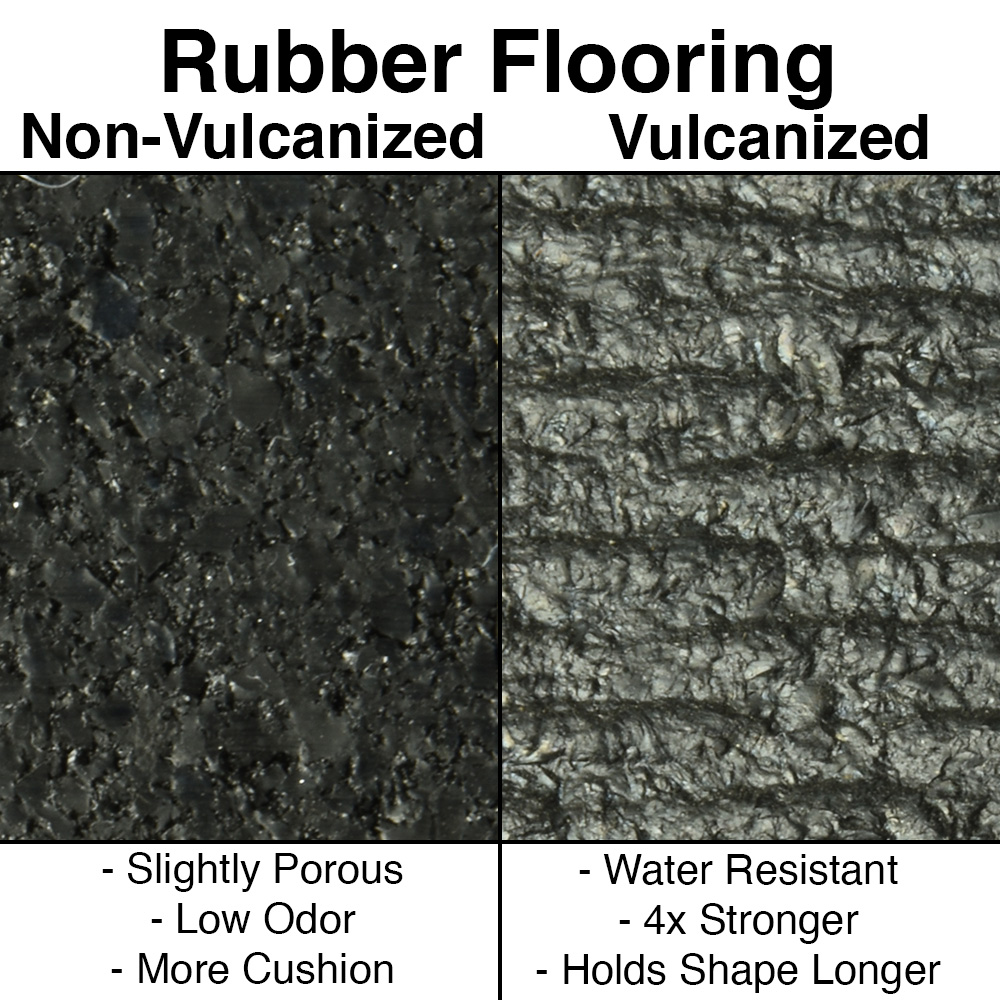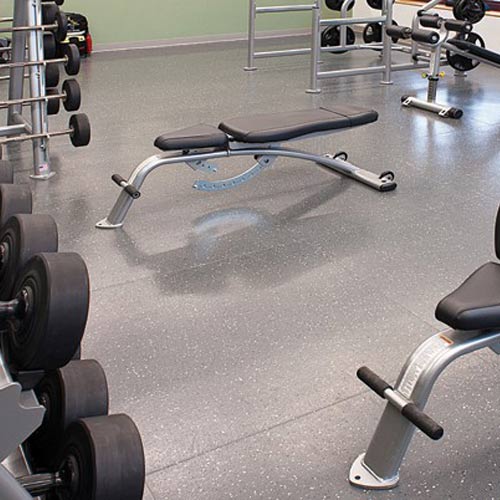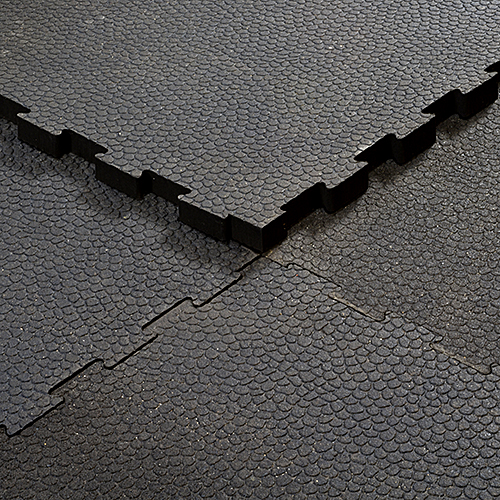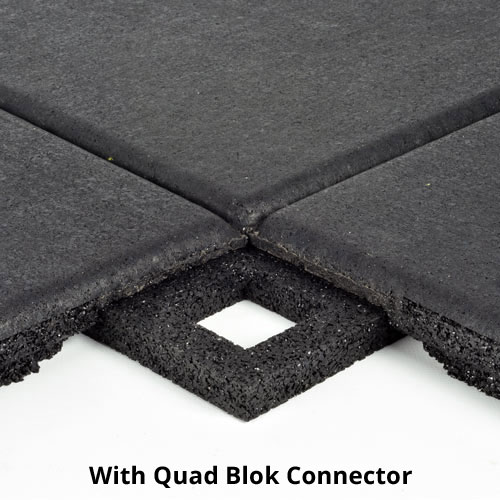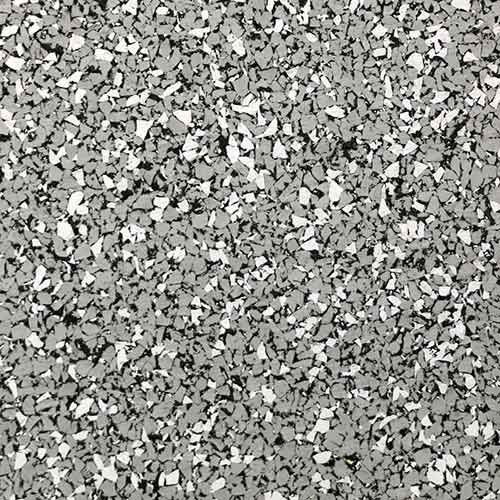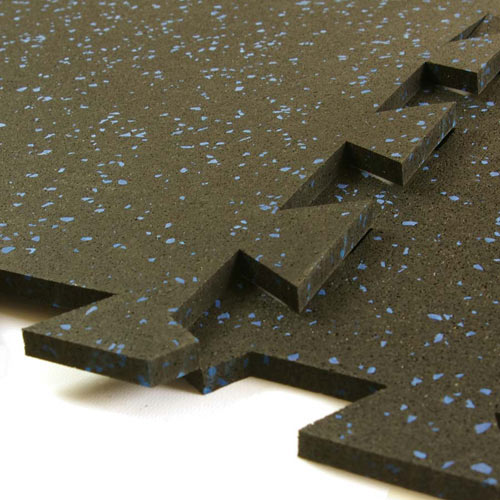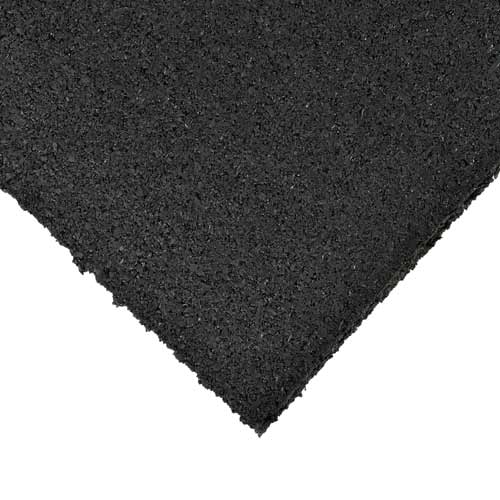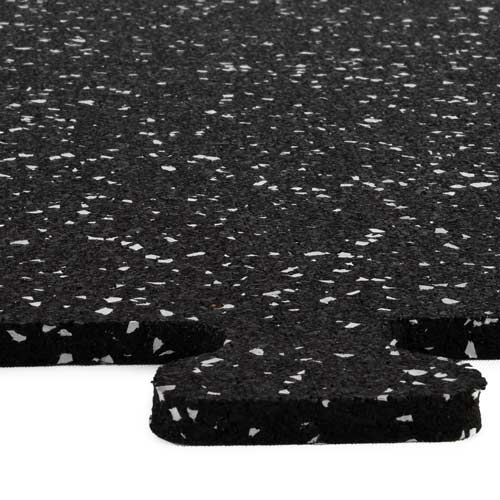Vulcanized vs. Non Vulcanized Recycled Rubber Gym Flooring
Related Product: Horse Stall Mats Straight Edge Cobblestone 3/4 Inch x 4x6 Ft.
To understand revulcanized rubber, you first need to understand the vulcanization process and how it affects a rubber's quality and durability.
Let's compare revulcanized rubber with recycled rubber products that haven't gone through the process.
What Is Vulcanized Rubber?
Vulcanized rubber has undergone a process called vulcanization. The vulcanization process converts rubber or similar polymers into a more durable and long-lasting product. By using additives, the material is modified and forms a cross-linking structure between the polymer chains. In general, vulcanized materials are less sticky and usually stronger.Vulcanization uses high-pressure and high temperatures after a curative has been added to the raw rubber material. Using a process of compression molding, the rubber is heated and adopted to the shape of a mold. To cure the rubber, different substances are used. These include sulfur, peroxides, and metallic oxides.
Devulcanization and Revulcanization
When tires and other rubber material are no longer needed, they are often scrapped or thrown in the trash. For vulcanized rubber that needs to be recycled, the process of devulcanization is used, which reverses the vulcanization process. However, devulcanization does not result in a material that can be used for many rubber products. Instead, it may need to be ''revulcanized''.
Revulcanized rubber is essentially taking recycled rubber crumbs that have been devulcanized and vulcanizing them all over again, forming a brand new product. Revulcanized materials have many of the same qualities as the original vulcanized rubber, but they are usually not used for tires. Instead, they make a great product for flooring and other products.
Vulcanized Rubber versus Non-Vulcanized Rubber
Vulcanized rubber is ultimately stronger than non-vulcanized rubber. It’s denser and heavier, and when exposed to mechanical stress, vulcanized rubber will return to its original shape once the stress is removed. Non-vulcanized rubber will often be left deformed and can’t return to its original shape.Vulcanized rubber is non-porous, meaning liquids, like those from a melting water bottle, remain on its surface and aren’t absorbed into the rubber. Vulcanized rubber has a smoother finish, and since it’s non-porous, it can help to reduce bacteria growth.
Keep in mind that non-vulcanized rubber can be plenty strong and durable, but it can absorb liquids, and bacteria may form more easily on this type of rubber. Both types of rubber are useful, but they’re best suited for different applications.
Vulcanized Rubber Products
If you’re looking for a supremely strong rubber product that’s waterproof, consider one of these options available at Greatmats.The Horse Stall Interlocking Center Mat is made of 100% re-vulcanized recycled rubber with a 100% closed cell structure, making it completely non-absorbent for easy cleaning. It’s antibacterial and antifungal and offers excellent traction. This mat will have a high rubber odor, so it’s best for gyms in sheds or large rooms where odor isn’t a concern.
Speciation Gym Floor Tiles are made of heavy-duty vulcanized rubber. They feature a non-porous hammered finish and are spike-resistant while also providing great shock absorption.
We also carry several products that are made with vulcanized composition rubber. Vulcanized composition rubber is cured and then peeled into a sheet or cut into tiles. It’s resistant to scuffing and scratching and is slip-resistant when wet or dry. This rubber is porous.
The Performance Rally Rolls are made of 83% recycled rubber and feature vulcanized composition rubber. They wear well and are slip- and fade-resistant. These rolls also help to absorb shock and sound and are for indoor use only.
The UltraTile Rubber Weight Floor is made of reclaimed rubber. This vulcanized composition rubber tile is resistant to impacts from heavy weights. It also helps to reduce noise and shock, so it’s ideal for use in gyms and weight rooms.
Non-Vulcanized Rubber Products
We also carry several quality non-vulcanized rubber products ideal for many gym applications.The Plyometric Rubber Roll ⅜ adds cushion to your athletic flooring, ideal for plyometric flooring and dance studios. It’s durable enough to withstand athletic shoes and is an economical flooring solution.
Our Greatmats Interlocking Rubber Floor Tiles are made of impact-absorbing rubber strong enough to support the weight of exercise equipment. They feature 82% recycled rubber and are suitable for use in home gyms, weight rooms, and more.
The Geneva Rubber Tile is made with 85% post-consumer recycled material. It features a low odor, so it’s a popular choice for commercial gyms and weight rooms.
